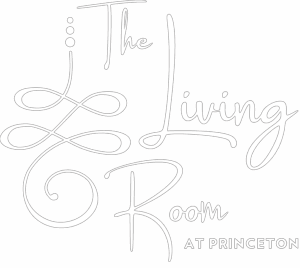Drug and alcohol addiction is a complex condition with roots in a person’s genetics, behaviors, environment, and experiences. Many factors can increase a person’s risk of developing substance abuse and addiction. The complexity of addiction can make it challenging for people to overcome this condition.
Experiencing childhood trauma is one factor that influences the risk of substance abuse. People who experience abuse or other traumatic experiences as children are more likely to struggle with substance use disorder (SUD) as adults.
This article will explore the link between childhood trauma and substance abuse. You will learn:
- How childhood experiences increase the risk of addiction
- How to identify the effects of childhood trauma
- How to recognize substance use disorder (SUD)
- Where to find treatment for trauma and addiction
If you or someone you love lives with the effects of childhood trauma and substance abuse, you are not alone. Reach out to The Living Room specialists now to find effective, compassionate treatment for trauma and addiction. Contact our intake team to learn about our programs or schedule an intake assessment.
What is Childhood Trauma?
The experiences people have during childhood can impact the rest of their lives. Children who experience traumatic events during childhood may face significant challenges and setbacks later on in life.
A traumatic event is any situation that causes physical or mental harm. Some examples of adverse childhood experiences that can be traumatic include:
- Sexual abuse
- Child abuse or neglect
- Living with a parent who has a mental illness
- Witnessing abuse
- Living in a home with a parent who used alcohol or drugs
- Having an incarcerated parent
- Being involved in a serious accident
- Surviving a war, natural disaster, school violence, or community violence
- Witnessing a crime
- Losing a parent or caregiver
- Being the victim of bullying
Experiencing trauma during the early years can impact a child’s brain development. Experiencing childhood abuse, neglect, or other traumatic events can cause significant changes in how a child perceives themself and the world.
The impact of childhood trauma does not end in adulthood. The effects of trauma can last for a lifetime. People living with trauma from adverse childhood experiences must seek specialized treatment. Trauma-informed therapy and other treatments can help people manage symptoms, improve functioning, and feel better.
Childhood Trauma and Addiction: Understanding the Connection
Untreated trauma can result in chronic, toxic levels of stress. If this stress lasts for a long time, it can essentially “rewire” the brain. These changes can make it challenging for a person to regulate their emotions.
Repeated exposure to trauma over stimulates the amygdala. The amygdala is part of the brain associated with emotional regulation. Chronic over-activation of the amygdala can result in an increased risk of developing mental health conditions. It can also increase a person’s vulnerability to addiction.[1]
But what is behind this connection?
People who have experienced childhood trauma may have post-traumatic stress disorder (PTSD) and lasting psychological symptoms, including:[2]
- Hypervigilance (feeling alert or “on guard” all the time)
- Anxiety
- Fear
- Sleep problems
- Chronic stress
- Avoidance of things that remind them of the traumatic event
- Negative self-image or low self-esteem
People who experience psychological symptoms that overwhelm their coping ability may use drugs or alcohol to reduce their discomfort. They may abuse addictive substances frequently, which may lead to addiction.
Research shows that experiencing childhood trauma affects people’s risk of developing substance use disorder. Over a third of young people who experience childhood abuse or neglect will develop SUD by the time they are 18.[3]
It is essential to understand the strong connection between childhood trauma and substance abuse. You must watch for the signs of substance abuse and trauma and seek treatment for both conditions as soon as possible.
Recognizing and Treating Substance Use Disorder
Recognizing substance abuse and addiction can be challenging. In some cases, the symptoms may be hard to identify. However, drug and alcohol abuse often causes significant changes in the way a person thinks, feels, looks, and behaves. Knowing what signs to watch for can help you identify a problem and seek addiction treatment quickly.
Here are some common signs of substance abuse:[4]
- Using more drugs or alcohol over time
- Needing to use a larger dose of a substance to get the desired effects
- Taking risks while using drugs or alcohol, such as having unprotected sex or driving under the influence
- Stealing or doing other illegal things to get drugs or alcohol
- Experiencing withdrawal symptoms if you stop drinking or using drugs
- Having cravings for addictive substances
- Neglecting your hygiene, responsibilities, hobbies, or relationships because of substance use
- Wanting to stop using a substance but finding that it is too challenging without help
Trauma-informed addiction treatment programs can help you uncover and heal the roots of your substance use. During treatment, you will receive the care, treatment, and support you need to safely stop using substances, address your trauma, and learn to move forward.
Get Help Now
If you or someone you love struggles with substance abuse and the effects of trauma, you are not alone. Reach out to the specialists at The Living Room to explore our holistic treatment programs or to schedule an intake evaluation.
References:
- National Institute of Health (NIH): Amygdala functional connectivity in the acute aftermath of trauma prospectively predicts severity of posttraumatic stress symptoms
- U.S. Department of Veterans Affairs: Common Reactions After Trauma
- National Institute of Health (NIH): Substance use, childhood traumatic experience, and Posttraumatic Stress Disorder in an urban civilian population
- American Psychiatric Association: What Is a Substance Use Disorder?

